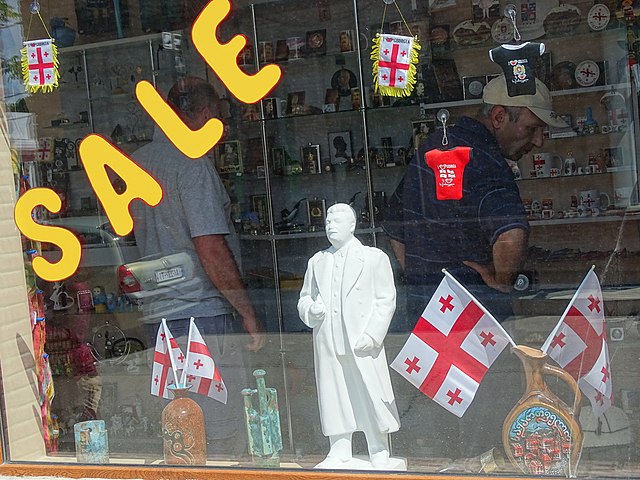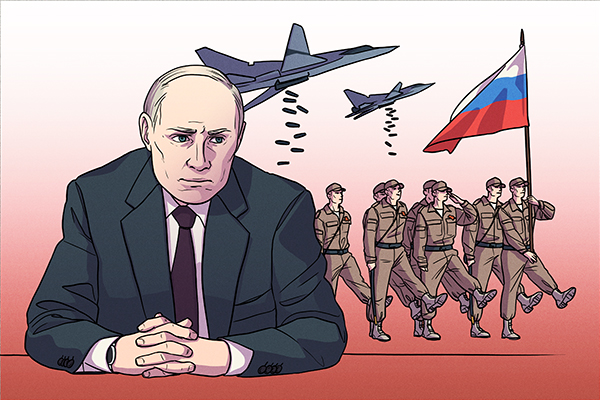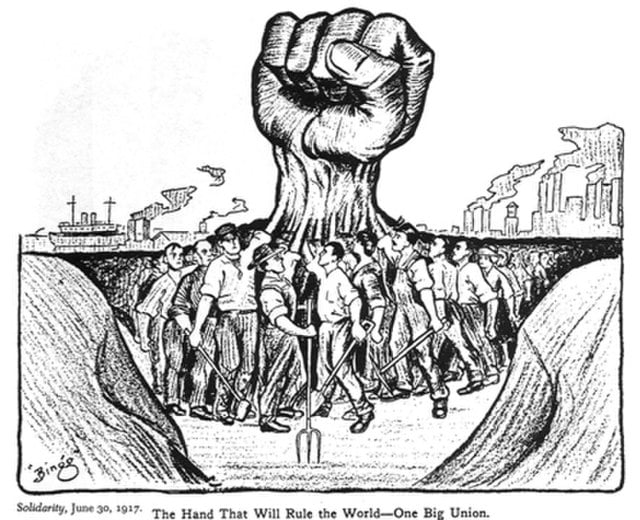The unreality of Stalinist realism
Happy New Year! Thank you to all subscribers for supporting our work, and especially our paid subscribers (subscribe here). Our first article for the year is a review of a book by co-thinkers in the UK.

Stalinist Realism and Open Communism: Malignant Mirror or Free Association, by Ian Parker. Resistance Books, 2022. https://resistancebooks.org/product/stalinist-realism-and-open-communism/
Reviewed by DAPHNE LAWLESS
For most of a decade, Fightback’s analysis has warned about the disturbing trend where sections of the radical, anti-capitalist Left have moved to positions where they support social conservatism, nationalism and anti-science or conspiracy theory. We’ve used somewhat novel phrases to describe this phenomenon, from “Conservative Leftism” to “Red-Brown”. Marx and Engels themselves, in the Communist Manifesto, described several varieties of what they called “Reactionary Socialism”,1 which still sounds familiar today. But there’s another, quite-well-known name for Marxist-sounding language being used to justify nationalist, bureaucratic, monopoly capitalism – Stalinism.
Fightback is always happy to find other anti-capitalist groups in the world who understand this pressing problem, and one of these groups is Anti*Capitalist Resistance in Britain. Ian Parker – one of their militants and a practicing psychoanalyst – has contributed this short (less than 100 pages) contribution on the phenomenon of what he calls “stalinist realism” (always in lowercase... because fuck Stalin, I suppose?), and why it is a threat to the anti-capitalist Left..
Parker adapts this phrase from the works of the late Mark Fisher, a prominent and original anti-capitalist thinker of the early years of this century. One of Fisher’s most famous works – Capitalist Realism (2009) – described the dead end to politics produced by “the ideological claim that capitalism is the only possible reality today, that there is no alternative.” (Kindle location 39). Parker extends the analysis to describe “a weird flip-side of capitalist realism that pretends to offer a way out of global capitalism but which locks us all the more tightly into exploitation and oppression” (KL 47)
While capitalist realism presents itself as Margaret Thatcher’s famous “There Is No Alternative”, stalinist realism counters that, yes, there is an alternative – but only the old Cold War alternative of authoritarian, bureaucratic states with a huge secret police apparatus. The two negative “realisms”, paradoxically, prop each other up:
Capitalist regimes hypocritically complained about the lack of democracy in the Soviet Union, but loved that Stalinism was smearing the reputation of revolutionary socialist politics in blood... Capitalism, and the kind of ‘capitalist realism’ that tells you that there is no alternative, was mirrored by Stalinism and a ‘stalinist realism’ that tells you that the only alternative is oppressive and controlling. (KL 93, 95)
In much the same way that the new wave of fascism and “anti-woke” Right-wing populism is promoted by reactionary billionaires and their astroturf projects, argues Parker, the material basis for stalinist realism today is the existence of the regimes that are now capitalist but still hypocritically use old socialist symbolism to cloak their agendas, and the existence of the old communist parties that are still geared to the needs of those regimes…
The two main power-bases for stalinist realism today are Vladimir Putin’s Russia and Xi Jinping’s China, and stalinist realism is the ideological force that glues some well-meaning radicals into the agenda of those regimes. (KL 130-132)
In the 1980s and 1990s, the big ideological push, led by think tanks like the Mont Pelerin Society, was for neoliberalism, and most of the self-described Marxist Left (disoriented by the ongoing collapse of the Soviet Union and its Eastern European “clone” states) intellectually surrendered to it. Today, the ideological push from various well-funded sources is for a reactionary, authoritarian politics seeking to “RETVRN” (as spelled in online memes) to an imagined pre-neoliberal paradise. While Leftists can usually (not always) resist the temptation of the fascist or neo-feudal, patriarchal, “traditionalist” vision, stalinist realism (and its weaker cousin, nostalgia for post-war Keynesian-style capitalism) are much more attractive. Parker seems to be referring directly to the British Socialist Workers Party, currently advocating for Ukraine to be disarmed in the face of genocidal Russian aggression, when he says:
The pity is that stalinist realism sucks in revolutionaries who once proudly declared that they refused to take sides, that they would choose neither Washington nor Moscow but struggle for international socialism. They were right then... (KL 169)

Borders
One of the central arguments in Fightback’s Against Conservative Leftism2 is that these reactionary ideas on the Left stem from an undialectical critique of neoliberalism. When the argument is that the changes in global capitalism since the mid-1970s have been unambiguously negative, then things like global labour mobility, and advances in the status of women, indigenous and queer people in the developed countries, can themselves be dismissed as unimportant – or even a step backwards. This may take the form of arguments that closed borders, immigration controls and even the traditional patriarchal family should be defended by socialists.3
Parker ably points out that this contradicts the Marxist tradition stemming all the way back to the Communist Manifesto:
Capitalism is not always all bad; Marx, for example, saw it as a once progressive force and as globalising in the best sense of the term, enabling connections between people and the internationalism that today infuses our politics as revolutionary Marxists. The dramatic increase in innovation and technology is something we can and must make use of….
With globalisation – the malign colonial harvesting of natural resources and bodies and the spread of capitalism as a political-economic system around the world – there always was a progressive potential for connection between peoples, a positive open globalisation of resistance and solidarity. (KL 424-439)
The famous statement of the Manifesto that under capitalism “all that is solid melts into air”4 is terrifying for a nostalgic “socialist” who yearns for the old world of self-reliant nation-states with firm borders preventing the flows of goods or people. “Stalinist realism loves strong borders, strong boundaries, it loves to know what is what and who fits where,” as Parker puts it (KL 185) – of course, strong borders were also essential to post-war Keynesian capitalism, to which other sections of the Conservative Left look back.
But it’s not just borders between states or people which are vital to reactionary forms of socialism – but boundaries between genders.
Trans people are a threat to stalinist realism... The watchwords of stalinist realism are boundaries, borders and an ordered world. This order divides the world into ‘camps’, spheres of influence, and it divides populations into men and women who should healthily and happily fit themselves into the bodies described by the Stalinist realist ‘scientists’. (KL 210, 226)
Writing from the UK, a state which has been at the forefront of attacks on trans identity and in which transphobic ideas are widely accepted even on the radical Left, Parker takes the bold and refreshing stance that trans and queer identity is not simply a minority which should be defended by socialists on general principle, but an example of the very breaking down borders which is necessary for a better world:
An ‘intersectional’ approach to the commons and communism is not a combination of different kinds of identity, but throws identity as such into question, whether that is national identity or gender identity or sexual identity...
We always need to ‘queer’ identity of any kind in our political struggle at the very same moment as we might tactically lay claim to an identity to build a particular movement... we could say that the queering of identity is at the deepest core of internationalism. Capitalism is good at incorporating radical movements, including lesbian and gay and even trans movements, turning them into consumer market niches, into ‘identities’ as commodities to be bought and sold. But when there is a queering of identity, a refusal of binary categories of male and female, a questioning of how we are assigned a place in the social order or in the family, capitalism is put under more pressure. (KL 458-467)
Parker is therefore clear-eyed about how a simplistic “identity politics” has been compatible with neoliberalism, in the sense of allowing a subsection of women, queers, ethnic minorities and indigenous people to join the middle class or even the ranks of capitalists. But he is also adamantly against the stalinist-realist solution which would (again) retreat into the past, to an imagined “unified working class” where gender, race and sexuality were simply not recognized, and the white male worker providing for a patriarchal nuclear family was taken as the norm:
This is where the peculiar stalinist realist obsession with the supposed threat of ‘identity’ comes into play. This takes different forms, including in some places the fantasy that the working class is a kind of ‘red wall’ disturbed and disrupted by the enemy of ‘identity politics’... a fantasy that there is an already united non-racist homogeneous working class just waiting for the correct leadership by the right party, and that this working class has been somehow hurt and ‘left behind’ by the identity-politics promoted by anti-racist and LGBTQI+ movements. (KL 270)
The realism of defeat
Parker shares Fightback’s condemnation of “campism”, which he ably defines as:
the claim that the world is divided into different ‘camps’ and that you need to make a choice, that if you want to oppose capitalism and its own militarised NATO world then you must, of necessity, opt for the other camp, as if that is a progressive alternative. The illusion that there is a ‘progressive camp’ in the world now is an integral part of stalinist realism. (KL 141)
In 2015’s Against Campism,5 Fightback argued that the basis of campist politics is a kind of defeatism about the possibility of working-class self-activity: “If you can’t fight for yourself, either because you are too weak or too isolated the temptation is to look for other forces who can do it for you”; those forces, in this case, being strong states opposed to the one you live in. Parker has come to the same conclusion:
The trap is that strong state power presents itself as the only alternative to apparently looser liberal free-capitalism. So it seems as if when you oppose capitalism you have to opt for one of the strong states, and sign up to the kind of command politics that one of the old ‘communist’ parties engages in...
The fantasy that stalinist realism provokes and feeds is that there is good power, state power you can happily offer yourself to, that you can trust what those leaders tell you, and that deaths in Xinjiang or Tibet or Syria or Ukraine are myths or a price worth paying. (KL 178)
Given all of this, Parker maintains that “stalinist realism” has to be something that the anti-capitalist Left struggles against as much as it does against capitalist realism:
It is not an alternative. It is part of the problem... the existence of authoritarian closed states that proclaim that they are communist or those regimes that are ruled by ‘communist’ parties effectively frightens people off from demanding an alternative, from building an alternative for themselves.... a kind of realism that tells you there is no hope for socialism except as a kind of military discipline... while it pretends to be an ally of the left, it is a deadly enemy of it, kicking us while we are down... the kind of politics that tells you that if you dislike capitalism, if you are searching for another reality, then this, obedient and stupid agreement with bureaucratic power, is the only alternative you can hope for. (KL 51,61, 97, 124)
This is not an argument which would go down well in those sections of the Left which are focussed on a form of “unity” between everyone who describes themselves as some kind as socialist or communist. Parker is making it clear that the difference between “stalinist realism” and his alternative of “open communism” is not a difference of opinion between comrades, but two entirely different strategies leading to two entirely different goals:
freedom is essential to communism, and that includes the kinds of limited freedom that were stolen from us when capitalism was developed as a political-economic system...
Against closed bureaucratic fake-communism – the heritage of tragic failed revolutions and counterrevolutions – we open communism to a transition that anticipates the forms of life we want in the forms of struggle we engage in now. (KL 72,75)

A programme for open communism?
Parker’s open communism is “ecosocialist and feminist and anti-racist, attentive to the different ways we unthinkingly treat others as separate and lesser than us, the way we ‘disable’ others.” (KL 432). It rejects both the liberalism that “pretend[s] that everyone has an equal say now, that we can jettison the old divisive stuff about class struggle and have a big debate across the social classes, those who are exploited and those who exploit us” (KL 535) but also “the ultra-left, those who are take up a radical posture that does not really frighten anyone but drives people away from politics because it drives people away from those kinds of sect-like politics.”
But what does it mean in positive terms? Parker’s answer is: “socialist-feminist prefigurative politics” and a “transitional programme”:
It was socialist-feminism that reminded us of a transitional strategy that combined an ethical opening of communism now, one that linked social change with personal change... If we really want a society in which there is democratic collective debate about the way forward we need to ‘prefigure’ that now. Socialist-feminist prefigurative politics returns us to the revolutionary Marxist anti-Stalinist history of a ‘transitional’ programme for change. Transitional demands include that there be no secret diplomacy, that the books of the companies be opened, and that we directly link wages to inflation so we don’t pay for the recurring economic crises that characterise capitalism. Notice that these demands link what is humanly possible now with the kind of society that will be more democratic and just. (KL 559-573)
Although the idea of the “Transitional Programme” – a set of demands based on what are possible within capitalism, but which cannot be fulfilled without challenging capitalism altogether – is most strongly associated with the Trotskyist tradition, Parker also rejects the traditional “democratic centralist” form of organisation associated with that tradition:
stalinist realism relies on the direct centralisation of politics. This is also the case in the so-called ‘democratic centralist’ organisations that claim to have broken from Stalinism and who should know better. In this way, stalinist realism replicates itself in the many little sects run by little tin-pot leaders.. Members and followers are expected to give their lives to the group, and anxiety is induced in them; they become anxious that their political worlds will disintegrate if the group collapses and the prospect of political change will be destroyed. (KL 298-301)
It would be interesting to talk to Parker about whether what he sees as the degeneration of the British SWP towards stalinist realism has something to do with its “democratic-centralist” internal culture, or its track record protecting sexual abusers among its leadership – or whether, indeed, the two are intimately linked. This kind of analysis would be the strength of socialist-feminist politics, which the SWP (reacting against neoliberal feminism of the 1980s) has firmly rejected.
This short book replicates a lot of Fightback’s analysis over the past decade, and indeed in places puts it more clearly than we ever have. It’s always a pleasure to find international co-thinkers. And yet, there is the gnawing question of: what is to be done? Anti*Capitalist Resistance, like Fightback, is in a minority on the radical left in their country. The “stalinist realists” have the big organisational battalions and influence in the mass organisations. The British Labour Party seems to be divided between two equally rotten tendencies, one which supports Ukrainian resistance but despises trans people, and one which is precisely the opposite. It’s all very well to say what kind of movement is necessary. But what can realistically be done, here and now, to build such a movement?
The problem with “stalinist realism”, just like capitalist realism, is that success is its own argument. Pushing the line of Moscow or Beijing – as does turning into a full reactionary populist – gives you resources, a platform, access to the corridors of real power. Although Fightback would agree with Parker that trans liberation is fundamental to “open communism”, this despair of working-class self-activity and cheerleading for “strong state power” has led in this country to many young trans and genderqueer communists becoming “tankie” supporters of Stalinism, or “campist” defenders of violently anti-trans regimes such as Putin’s Russia. We might see this regrettable contradiction in the same light as Black, Hispanic or indigenous peoples espousing white-supremacist or fascist politics.6
In the 1970s, “Third Camp” parties like the British SWP grew precisely because they were able to recruit among the militant, self-organising sectors of the working class, and become a real social threat to both capitalism and Stalinism. Is such a thing even possible today? Or are the people pushing for “open communism” doomed to talk among ourselves, as fascism rises and the planet burns? I urge all readers who take these issues seriously to buy this cheap, brief book, and join the debate.
1https://www.marxists.org/archive/marx/works/1848/communist-manifesto/ch03.htm
2https://buttondown.email/Fightback/archive/against/
3A deft skewering from an anarchist point of view of this kind of politics, embodied by writers such as Angela Nagle and Catherine Liu, can be found at https://libcom.org/article/pmc-meets-tucker-carlson-left
4https://www.marxists.org/archive/marx/works/1848/communist-manifesto/ch01.htm
5https://buttondown.email/Fightback/archive/against-campi/
6https://www.aljazeera.com/opinions/2023/6/2/why-white-supremacists-are-not-always-white